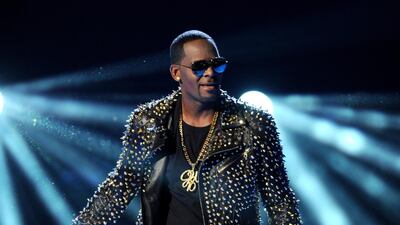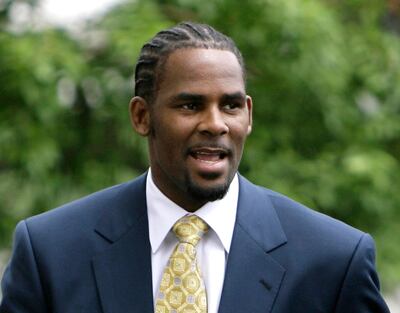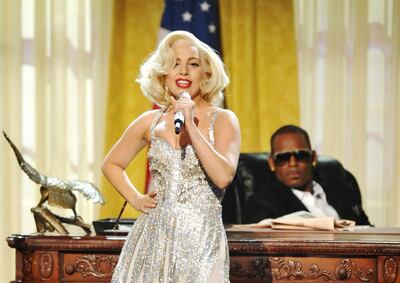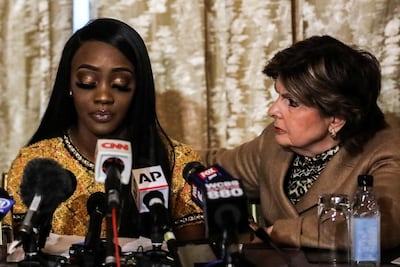It's been 13 days since docu-series Surviving R Kelly first aired in the US, detailing allegations of sexual and domestic abuse dating back to the 1990s.
In the weeks since, an official criminal investigation has been launched into the long list of allegations made against the singer, his label RCA Records/Sony Music has bowed to pressure to “shelve his music” and past-collaborators have spoken out, formally cutting ties with him and removing their collaborations from streaming sites.
That is all well and good, but why has this taken until 2019?
The Surviving R Kelly effect
It goes without saying that the 50-plus interviews, as featured in Surviving R Kelly, have had an immeasurable impact.
But allegations of Kelly's sexual relationships with minors are well-documented, starting with Tiffany Hawkins in 1996, who claims their relationship began when she was 15 years old and ended when she was 18.
It has been common knowledge that he married R&B singer Aaliyah in 1994, when she was 15 years old and he was 27. Kelly's tour manager, Demetrius Smith, has since admitted to forging documents, claiming she was 18 at the time.
Kelly has always denied knowing her true age, but on January 15, a 1994 video clip surfaced of Kelly clearly saying: "Right now, I'm producing a very talented lady – a young lady. She's 14, Aaliyah," as he worked on her debut album, Age Ain't Nothing but a Number (an intensely problematic title).
By 2002, Kelly had allegedly filmed himself sexually abusing a 14-year-old girl, with copies of the incident being sold on the streets.
We should have stopped listening to his music at this point, before he even had a chance to release Ignition (Remix) in 2003.
‘I just didn’t believe the women’
Then came the criminal charges. In 2002, he was charged over child pornography – 21 counts, from the making of child pornography to soliciting a minor.
“These acts are serious crimes that involve harmful acts which damage and degrade children, while diminishing the integrity of our entire community,” said Chicago police superintendent Terry Hillard at a news conference following Kelly’s indictment in June 2002.
“Everyone must be held accountable for their own personal conduct. That is today’s message.”
However, it would take six years for that case to come to trial. And when it eventually made it to court in 2008, Kelly was found not guilty because the jury could not prove the girl on tape was underage.
In Surviving R Kelly, juror John Petrean is questioned about why he found the singer not guilty, to which he replies: "I just didn't believe the women. The way they dressed, the way they acted; I didn't like them. I voted against them."
His frank statement got quite the reaction on Twitter:
Meanwhile, Kelly was still making music, and around about the time of the trial, people were going crazy for his "hip-hopera" Trapped in the Closet. It was nominated for an NAACP Image Award.
The public allegations then slowed down from 2008, but his career did not. Between 2008 and 2018, he recorded no fewer than 97 songs, including collaborations with Lady Gaga, Justin Bieber and Kelly Rowland (all in 2013) and Mariah Carey (2014).
In a decision that hasn't aged well, Lady Gaga's collaboration with Kelly was called Do What U Want, with the repeated lyric: "Do what you want with my body."
Yes, the music industry bears the burden of enabling R Kelly, but we all need to take a long hard look at ourselves, too. People everywhere carried on paying for his music despite the allegations of sexual assault of minors.
The Pied Piper of R&B
In 2017, Buzzfeed did a deep dive into allegations that Kelly was running and trapping women in a "sex cult" in a long-form article called Inside The Pied Piper of R&B's "Cult". The report claimed that Kelly controls "what they eat, how they dress, when they bathe, when they sleep, and how they engage in sexual encounters that he records".
It was the Buzzfeed story that prompted more of Kelly's victims to speak out, and the BBC to produce documentary R Kelly: Sex, Girls & Videotapes in 2018.
The previous year, The Guardian asked "Why does the entertainment industry continue to indulge R Kelly?" in an Arwa Mahdawi column, and 10 months later, The Guardian had a follow-up story called "The problem with R Kelly: how the star is finally facing the music".
But Kelly was yet to face the music. In 2018, he was still making music, releasing I Admit in 2018, in which he "admits" to having dyslexia, not going to church and having flaws. But he does not confront any of the serious allegations made against him, instead labelling allegations he is a paedophile as "crazy".
‘Mr. Kelly is taking his playbook from Donald Trump’
Last week, on Monday, January 14, it was announced that lawyer Gloria Allred would be representing two of Kelly's alleged victims, including Faith Rodgers. Not one to shy away from high-profile cases, Allred previously represented at least 28 of the women who accused now-convicted sex criminal Bill Cosby, as well as the family of O J Simpson's murdered wife, Nicole Simpson, in 1995.
“It seems that Mr Kelly is taking his playbook from Donald Trump, who threatened to sue the women who came forward during the campaign to speak about his behaviour towards them,” Allred has said of Kelly.
“In response to Faith’s lawsuit, Kelly retaliated against her by threatening to reveal what he alleges are details of her sex life.”
Time to #MuteRKelly
"R Kelly is Teflon," journalist Rooney Elmi said in an article for female-focused website The Lily last year of his seemingly unfaltering durability.
At this time, the #MuteRKelly campaign was under way to get him off the airwaves – something that now seems to have happened – but this epidemic of "sexual violence against women of colour" has taken far longer to permeate the public mind set than the #MeToo allegations made by predominantly white women.
However, now following the six-part documentary, it seems that R Kelly really is facing the music, with his records shelved and collaborations pulled.
But the public favour may not be fully against Kelly, because following the release of Surviving R Kelly, his streaming numbers nearly doubled.
According to Nielsen Music, “the singer’s streaming numbers grew significantly during and after the series. His music streamed 870,316 times on January 2, the day before the series premiere, and Kelly’s music garnered nearly 1.73 million streams after the sixth episode aired on January 6.”
So the music industry seems to have turned its back on him, but what will it take for the public to #MuteRKelly?
_________________
Read more:
Celine Dion is the latest star to pull the plug on duet with R Kelly
Men like Louis CK are not victims – the people they have preyed on are
Why it’s time for the pop world to face the #MeToo music
_________________





